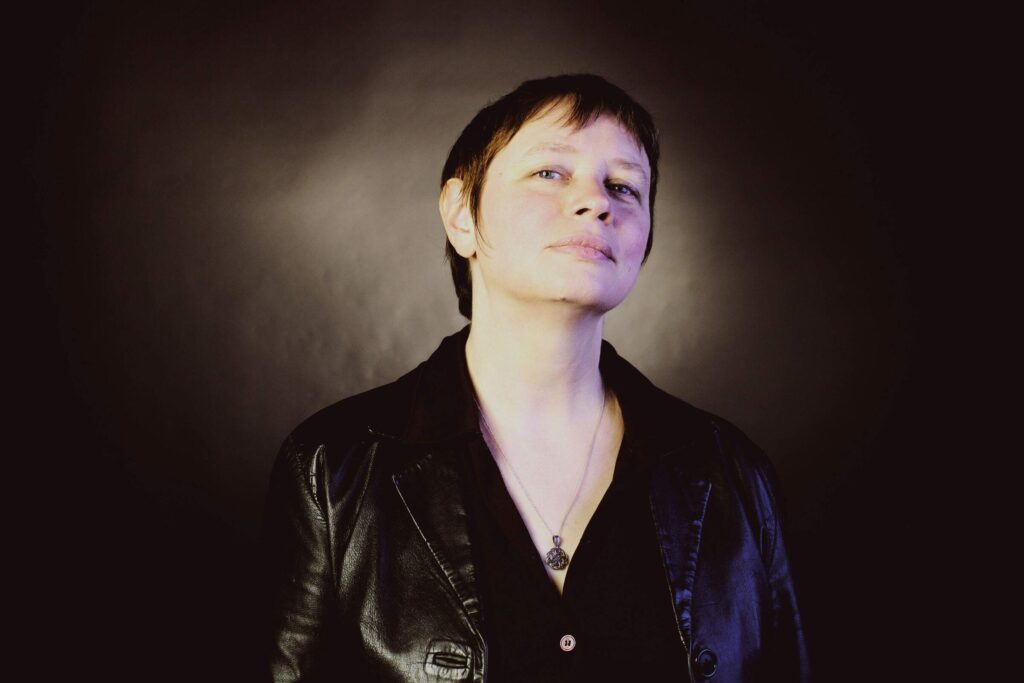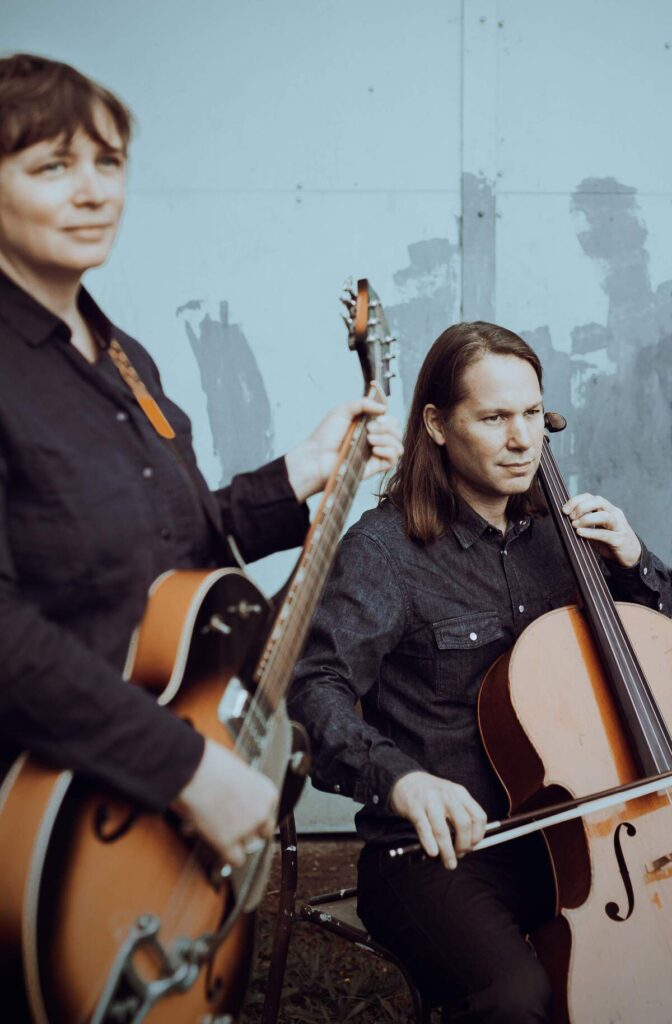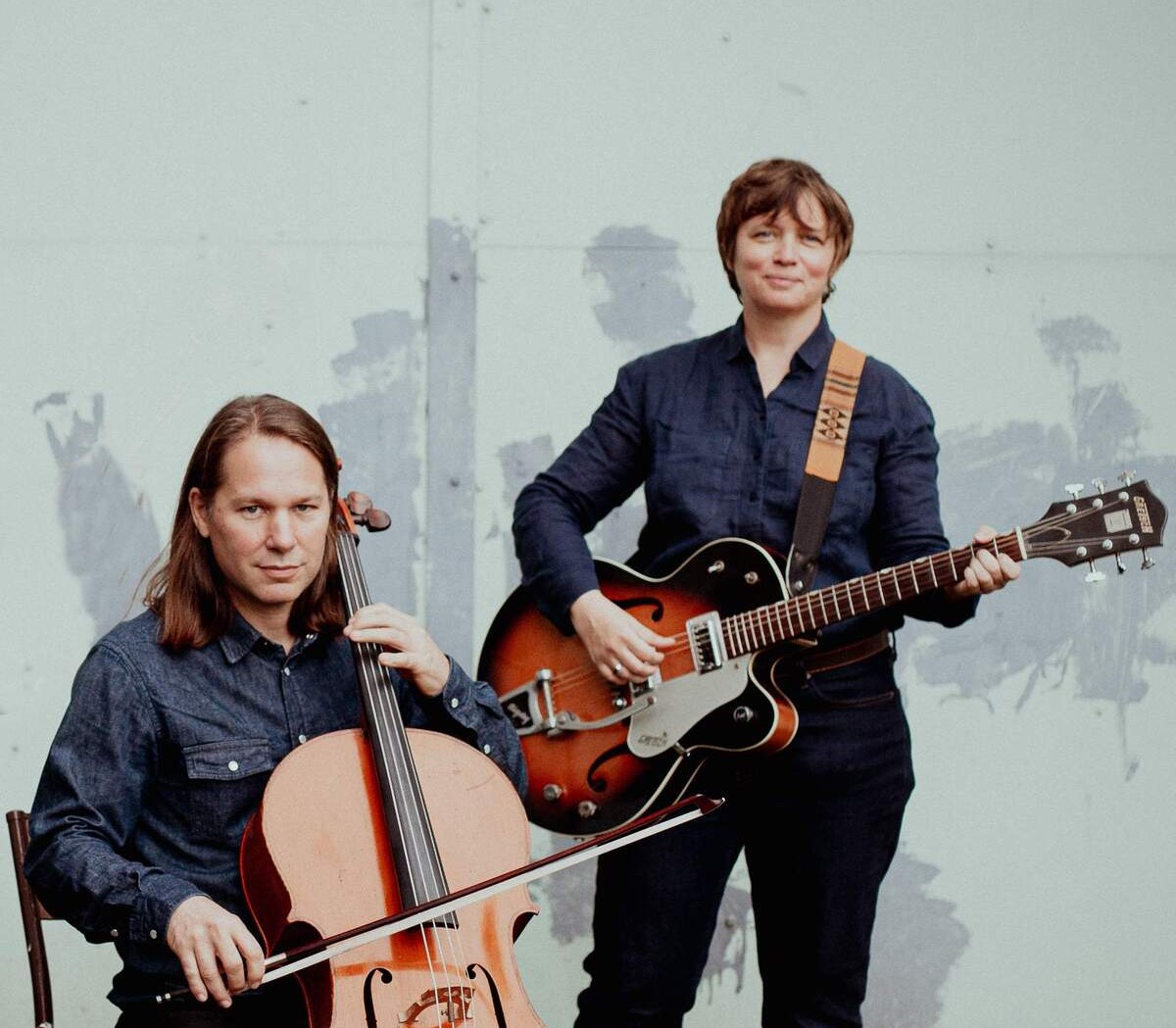Pollyanna’s ‘Man Time’ Unveiled: Inside the Track and the ‘Man Time (Deluxe)’ Release
‘Man Time,’ the title track from Pollyanna’s upcoming ‘Man Time (Deluxe)’ reissue, is premiering today, and it’s a slow-burn gut punch in the best way.
French indie-folk artist Isabelle Casier—aka Pollyanna—lays it all out with a story that’s as familiar as it is unsettling: a woman walking home at night, navigating the awkward, sometimes threatening energy of drunk men who won’t just let her be. It’s not dramatic, it’s just real.
The original version leans into pop-rock with a gritty electric guitar and full band energy, but it’s the newly recorded acoustic version that really cuts deep. Recorded live in one or two takes with vintage ribbon mics at Paris’ Cavern Studio, the stripped-back take dials up the tension without raising the volume. It’s bare, honest, and a reminder that sometimes the quietest songs speak the loudest. This is Pollyanna in 2025: unfiltered, onstage, and unafraid.

“It’s that grey zone, not knowing if things are funny or dangerous—that’s where the tension lies.”
That scene in the song—walking past a group of drunken guys at night—it’s so everyday, but still full of tension. When you were writing it, were you thinking more about fear, absurdity, or something in between?
Actually, this song was written after a brief: it was a Berlin Riot Grrrrl collective who wanted to make a compilation of songs about street harassment. For me, it was easy: I lived in front of a bar, in a gentrifying neighbourhood, which was the last cheap bar on the block. On Saturday nights, there were guys fighting, and I could see them from my balcony. It was sometimes like a comedy show: I once saw a drunk tiny man trying to perform karate kicks on the sidewalk with flip-flops. He lost them, of course—they flew through the air. He was screaming, he fell on the floor—it was hilarious.
Sometimes it was scary, though; there could be blood. And when I walked back home at night, past the terrasse, I didn’t know if it was cool or not. I began to think about this ambivalence: when you’re a woman, you have to stay cool, but at the same time you have to be very careful. Your safety depends on this balance, and it’s a lot of tension. I tried to write a song with that tight vibe in the verse, and a more poppy, light chorus (like when the guys pretend everything is fine and you don’t need to worry).
The acoustic version really hits differently—more stripped-down, more direct. Did playing it live for so long change how you felt about the song? Like, did it reveal a different side you hadn’t noticed at first?
The solo versions were worked out and rearranged on stage during live residencies. And I worked with a great musical coach, Sébastien Tanquart. We kept the same guitar parts but worked a lot on dynamics, the intentions behind the singing, and the pronunciation. I worked on my voice tone too—from whispers to louder parts. I’m glad you feel this work. It’s all in the details, actually, but as precise as I can get, and it’s crazy the difference it makes!
You write in English, but there’s definitely a French vibe in how you play with poetry and themes. Do you feel like your French brain and your English songwriting voice ever clash or push each other into interesting places?
I hope they push each other into interesting places! It’s funny what you say—I heard it from British people when I toured in the UK. I had never thought of it, this French side in me. I really don’t feel at home in the French scene. But it’s not that I’m an English songwriting jingoist. I hope the picture is bigger than that: I was brought up with music from many different places (French out-of-fashion trad folk, but also Andean and Celtic music). I spent part of my childhood in Calais, and we used to travel regularly to England. And I learnt English at a very young age, so I’ve got this soft spot for the English language—but it’s also a very personal thing, not only the influence of a global Americanised culture on me. English is also my mother’s secret favourite language, and I think I sing with her voice too, though she had no idea! I hope this authenticity is perceivable in my music. English is a language vaguely familiar everywhere, but it’s also unclear for most people around the world—I love this! You can address everyone with it, but with some distance, leaving the meaning behind the music.
In French songs, music is choking under words and messages; most of the time, it’s just overrated.
The two versions of the song feel like emotional opposites: the band version kind of dances around the tension, while the acoustic one lays it all bare. Was that contrast something you were playing with on purpose?
It’s due to the work we did with my coach: with the band, the focus was more on a pop-rock sound, but also, at that time, we were not very aware of the meaning of the songs—what they emotionally conveyed. For the solo versions, we had time to get to the core of every song—its meaning, its scenery. Again, I’m so happy that you hear it! We had in mind something like ‘Subway Song’ by The Cure. What was exciting was that this work was almost theatrical, focused on lyrics as they interact with the music—and this was, actually, very French-minded! Meaning, meaning, meaning… and theater. But I was very pleased to see we could actually work that way and still serve the music, and not the other way around.
You used to be a journalist, right? Do you think that way of observing the world still sneaks into your songwriting? Like, are you documenting stuff as much as expressing it?
Yes, a lot. I try to grasp the zeitgeist all the time—document it, but on an emotional level. I read papers a lot, follow the news in several languages… Songs travel; I want them to resonate with our time and speak to all the people they meet. I’m very interested in what happens here and there, and that growing global consciousness (about the environment, war, equality and human rights, as well as their opposites—how people cling to old-fashioned beliefs when they feel lost). I’m very interested in this loss of landmarks… Pop-folk music is one major contemporary landmark: I love to use it to deal with our fears. I hope music—and especially mine—can bring some relief, some human connection.
That feeling of not knowing if a situation is funny or dangerous—it really nails a kind of modern anxiety. Do you think we’ve all gotten more used to living in that weird emotional grey zone?
I’m really happy about that question—I feel less alone! Yes, you’re right, and I also had that in mind with this song. That’s exactly what I try to question: emotional stereotypes. I try to separate what is personal and what is imposed by our environment. Here, with the MeToo movement, we are now allowed to find these masculine behaviours scary and abusive, but before, you kind of had to pretend it was OK.
This grey zone—not knowing if things are funny or dangerous—works with other things too: political leaders, for instance. Some of them are so clownish you think they’re acting or performing, and maybe they are, actually—but in the end, they get into office for real, and it’s not funny at all. It’s always the same question: should we take this seriously?
After 100+ shows, recording these new versions must’ve felt a bit like capturing lightning in a bottle. What was it about the live versions that made you want to get them down for good?
Like I said, it was the work with my coach. It was at the end of the lockdown, at the end of 2021. We took that time to work differently on the songs and reveal the story they held. And I felt a huge difference playing them after that. I also felt a different reaction from the audience. Something got more intense, stronger. I think my voice shifted too, in a good way. I wanted to capture that.
Also because, when I recorded the songs with the band, I had less time to focus on myself. Typically, it’s a lot of organisation—you host bandmates, you cook, you drive, you manage. When it’s time to sing, you’re kind of exhausted by the process. For these solo versions, I did the opposite. It was all centered on me. It was like “me time”: I treated myself to a couple of days in Paris, alone in the studio with a very nice sound guy (Nicolas Sacco). We had pleasant lunch breaks (oops, another French thing in me here!). It was like staying in a caring home—a cure for the soul.

There’s so much variety on ‘Man Time’—folk, pop, even a bit of brass here and there. Is that just your musical curiosity, or do you think all your travels and outsider experiences kind of shaped that eclectic sound?
It’s both—I don’t know… And it’s also thanks to the people I meet on the road. For me, it all makes sense: mixing brass, distorted guitar, violin… The trombone player is actually my drummer on another record, but he’s into New Orleans jazz, and I thought this sound was interesting and should be featured somewhere in my songs. Most musicians I met outside France were very open to all kinds of music—in France things are more formal—but I wish I had that openness.
I hope my music remains easy to love though (I think it remains simple, doesn’t it?). All these sounds tell the story of pop music—how it mixed several cultures in Europe, the Americas, and beyond. The other day, I had my songs screened by AI to find soundalike artists… The results were nuts: Simon & Garfunkel, Cage the Elephant, Bad Bunny, Dem Bow, and some old-fashioned South American divas…
I think this is due to this combination in my music of different sounds and codes (the structure of my melodies is very much influenced by the Latin music I grew up with, for instance)—I don’t pretend to be original, but this mix tells my story.
And sometimes I’m a bit disappointed that this aspect of music is never really acknowledged—how it tells so much about the people who write and perform it. Look, France is really one of the worst countries for music (people are not really trained to appreciate it fully), but the good thing is that then you have nothing automatic or coherent. Rock, blues, African music, Irish and Breton folk, American or British rock, Latin songs—it’s all the same thing. My ignorance of styles helped me never find the main road for my music genre.
Klemen Breznikar
Headline photo: Lucie Pastureau
Pollyanna Website / Facebook / Instagram / YouTube / Bandcamp




